It’s laborious to overestimate the significance of keyboard shortcuts in Lightroom or in some other enhancing program. Shortcuts assist us velocity up and optimize our enhancing workflow. You could find the tutorial devoted completely to essentially the most helpful keyboard shortcuts in Lightroom right here.


There are additionally keyboard keys that don’t act precisely as shortcuts as a result of they work together with current instruments and serve the aim to switch or prolong their default capabilities. I name these “Keyboard Modifiers.”
One of the crucial highly effective keyboard modifiers in Lightroom is the Alt (PC), Possibility (Mac) key. Through the use of the Alt/Possibility key in numerous areas of Lightroom, we will prolong this system’s usefulness and even the useful vary of the assorted enhancing instruments.
In at the moment’s tutorial, I’ll clarify how one can prolong the performance of various areas of Lightroom utilizing Alt/Possibility keyboard modifiers.
Develop Module
I at all times begin with the Develop Module as a result of that is the place I spend nearly all of my time. Additionally it is the place the Alt/Possibility modifiers are essentially the most helpful and efficient.
Solo Mode
Within the Lightroom Develop Module, there are 9 essential enhancing panels. While you open all of those panels, it’s simple to get misplaced endlessly scrolling as you attempt to discover the fitting enhancing slider to your wants. Solo Mode helps you get rid of muddle by permitting you to have just one enhancing panel open (prolonged).
When Solo Mode is energetic and also you open any of the enhancing panels—just like the Cut up Firming, for instance—it closes all the opposite panels. Solo Mode is essentially the most helpful when your display actual property is proscribed like when utilizing a laptop computer.
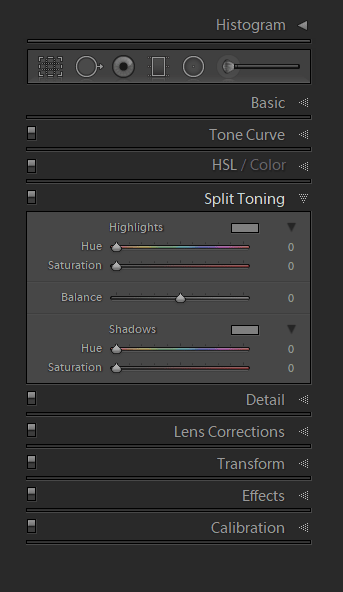

To activate Solo Mode, press the Alt/Possibility key and click on the header of any enhancing panel. To deactivate Solo Mode, preserve the Alt/Possibility key pressed and click on any of the enhancing panels once more.
I exploit Solo Mode 99% of the time, even after I use a desktop laptop with a big monitor. Solo Mode retains my UI neater.
Now, let’s dive into every enhancing panel and the instruments within the Develop Mannequin to see how we will prolong their functionalities through the use of the Alt/Possibility modifiers.
The Fundamental Panel
Reset Sliders
The most typical and hottest use of the Alt/Possibility secret is to reset a number of enhancing sliders to their default values. This performance works in nearly all of the panels together with the Fundamental Panel.
By holding the Alt/Possibility key down, the brand new choices (Reset Tone and Reset Presence) seem. By clicking the “reset choices,” you’ll reset all of the enhancing sliders to zero.
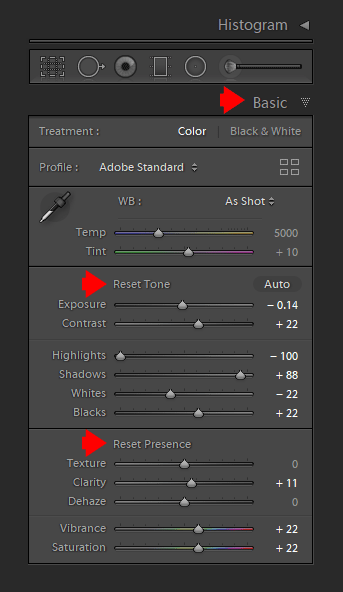

Present Spotlight Clipping
By holding down the Alt/Possibility key whereas dragging the Publicity, Highlights, or Whites sliders, you possibly can see if any areas of the picture have clipped highlights.
The white space of the preview signifies that each one three colour channels (pink, inexperienced, blue) are blown.
The pink, inexperienced, and blue areas present that just one channel is clipped.
The cyan, magenta, and yellow areas point out that two out of three channels are clipped.
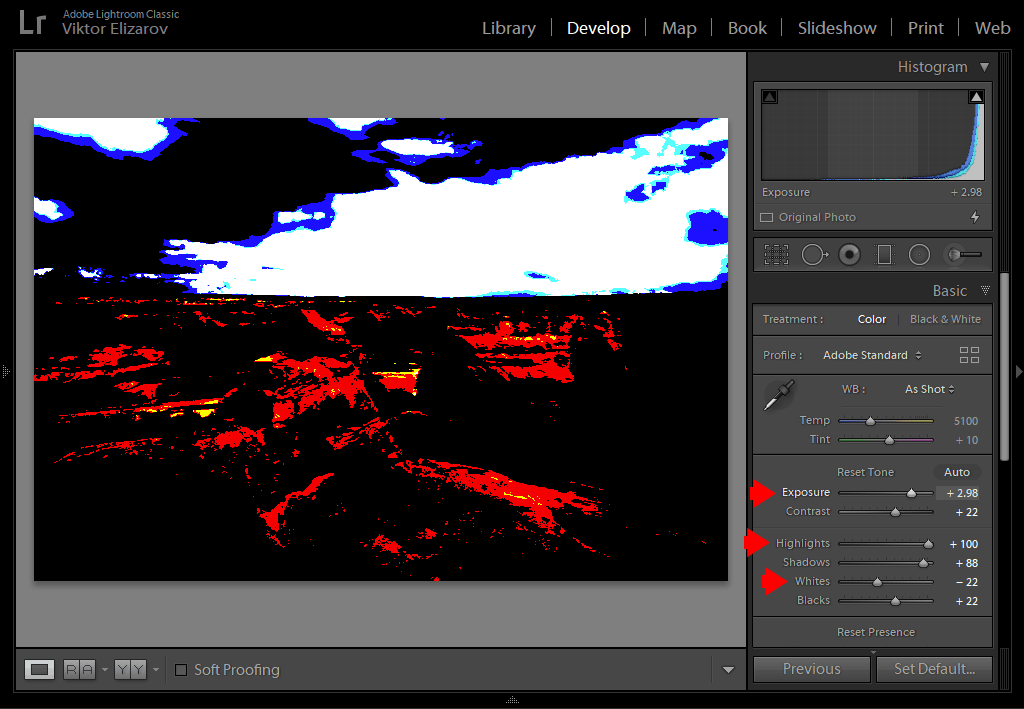

This performance is extraordinarily helpful when evaluating if the overexposed areas of the picture might be recovered. As a basic rule, if just one channel is clipped, there’s a good probability of recovering it. However when two or three channels are clipped or blown, you might be most certainly out of luck.
Present Shadow Clipping
By urgent the Alt/Possibility key whereas dragging the Shadows or Blacks sliders, you possibly can see the areas of the picture with clipped shadows.
The black areas of the picture point out that each one three colour channels have clipped shadows.
The pink, inexperienced, and blue areas point out that just one channel is clipped.
The cyan, magenta, and yellow areas point out that two out of three channels have clipped shadows.
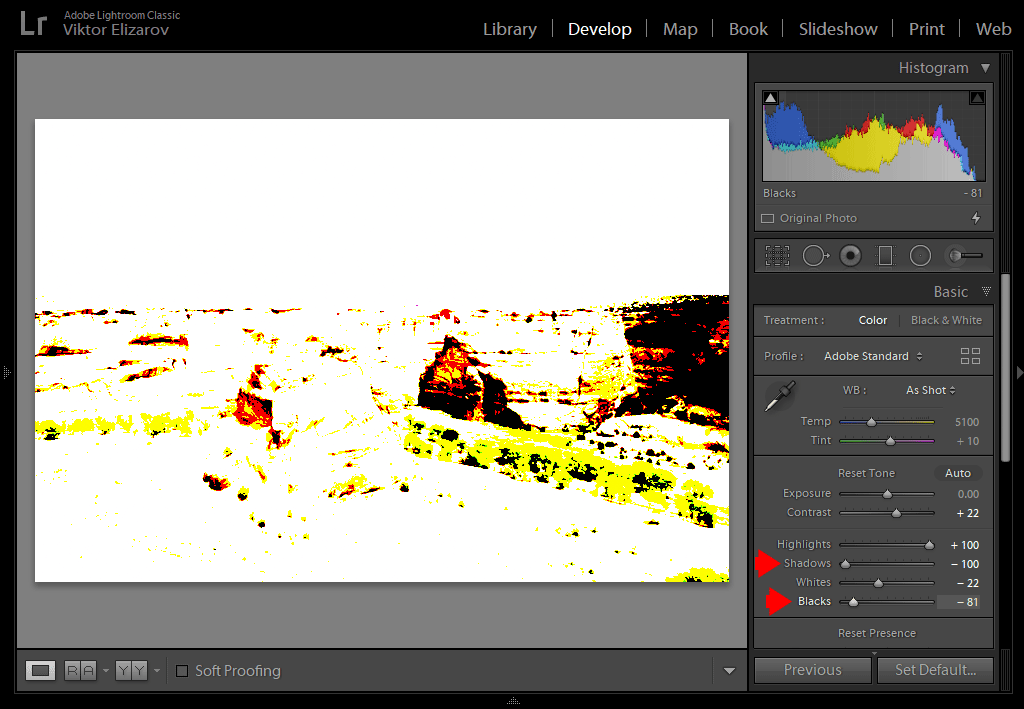

The Tone Curve Panel
Within the Tone Curve Panel, you possibly can regulate the tone curve through the use of the Area Sliders. In case you want better precision, you possibly can edit the tone curve straight by altering the form of the curve for the person colour channels (pink, inexperienced, blue) or the mixed channel.
Reset Area Sliders
By urgent the Alt/Possibility key when utilizing the Area Sliders, you possibly can entry the choice to reset all 4 Area Sliders to the default values (zero).
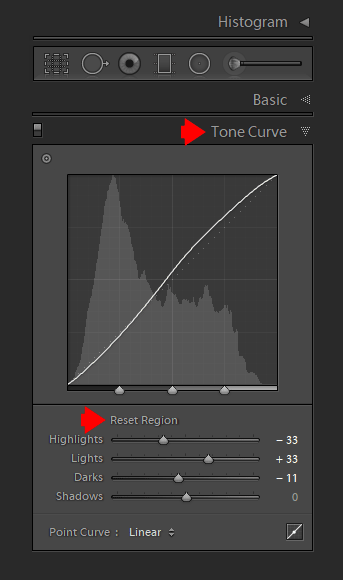

Entry High quality Tune Changes
When enhancing the tone curve straight, the Alt/Possibility modifier works in another way. The Alt/Possibility key modifications the sensitivity of the mouse motion and lets you make extra refined changes. This works extraordinarily effectively when mixed with the Shift key, which constrains the mouse motion to solely the Y-axis.
HSL/Colour Panel
Within the HSL/Colour Panel, the Alt/Possibility modifier has just one perform—it resets the enhancing sliders to zero. The panel has 24 complete enhancing sliders. It might be a chore to reset them one after the other.
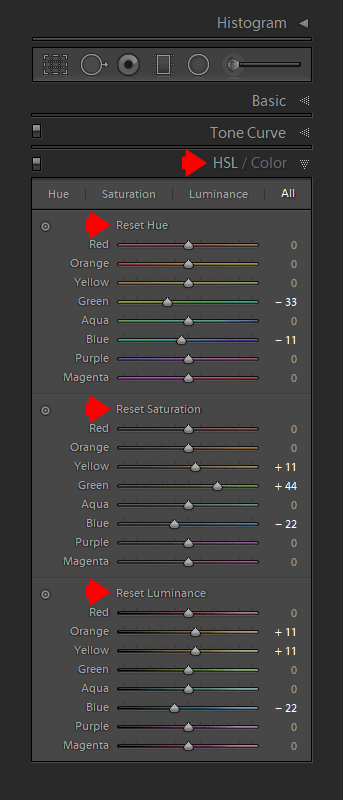

That is the panel the place I exploit the reset choices essentially the most usually.
Cut up Firming Panel
You possibly can reset the Highlights and Shadows whereas holding down the Alt/Possibility key.
Visualizing the Cut up Firming Impact
Maintain down the Alt/Possibility key whereas transferring the Spotlight Hue or Shadow Hue sliders to see the colour you chose at 100% saturation earlier than you dial it up. As soon as once more, this can be a very helpful visualization software that I exploit very often.
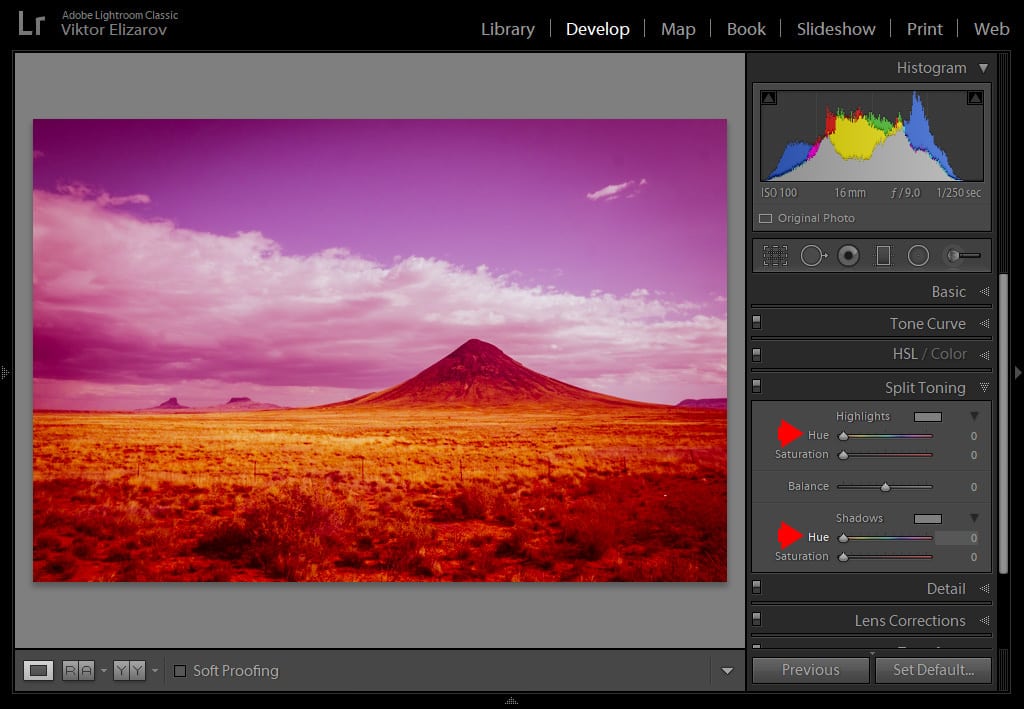

Element Panel
The enhancing sliders within the Element Panel assist you to take management of sharpening the picture and lowering any digital noise.
By holding down the Alt/Possibility key, you may have entry to the Reset Sharpening and Reset Noise Discount choices.


Visualizing Sharpening Impact
By holding down the Alt/Possibility key and transferring the Quantity slider, the picture turns right into a black and white preview that lets you higher assess the sharpening results.
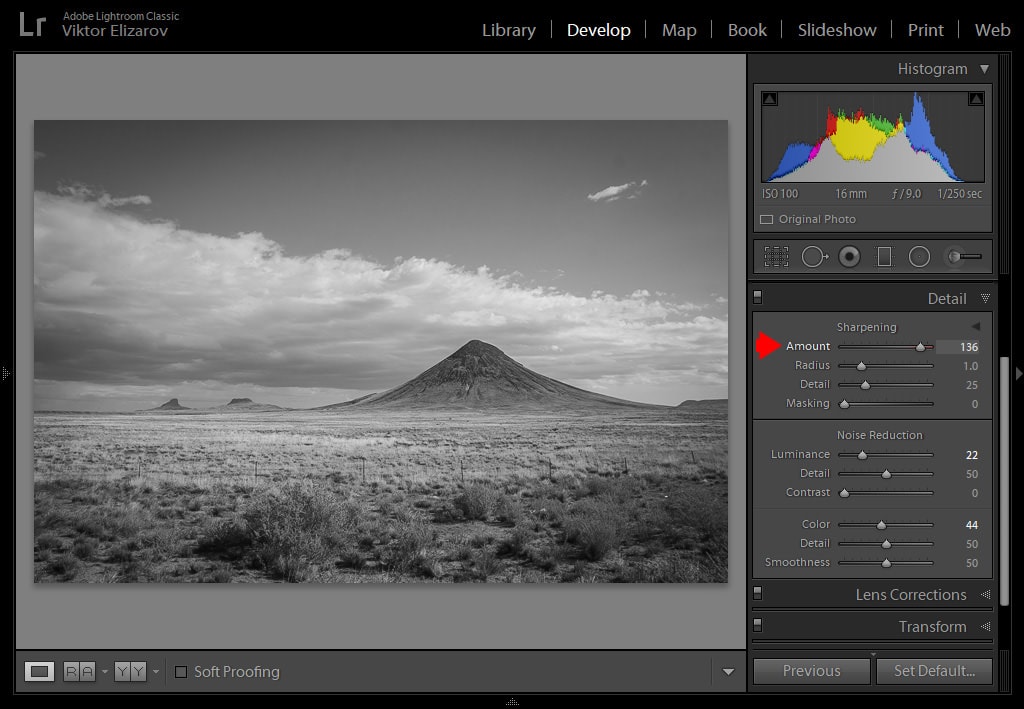

While you press the Alt/Possibility key and drag the Radius or Element slider, the picture preview turns to a impartial grey and solely the areas affected by the sharpening are proven in white. That is priceless.
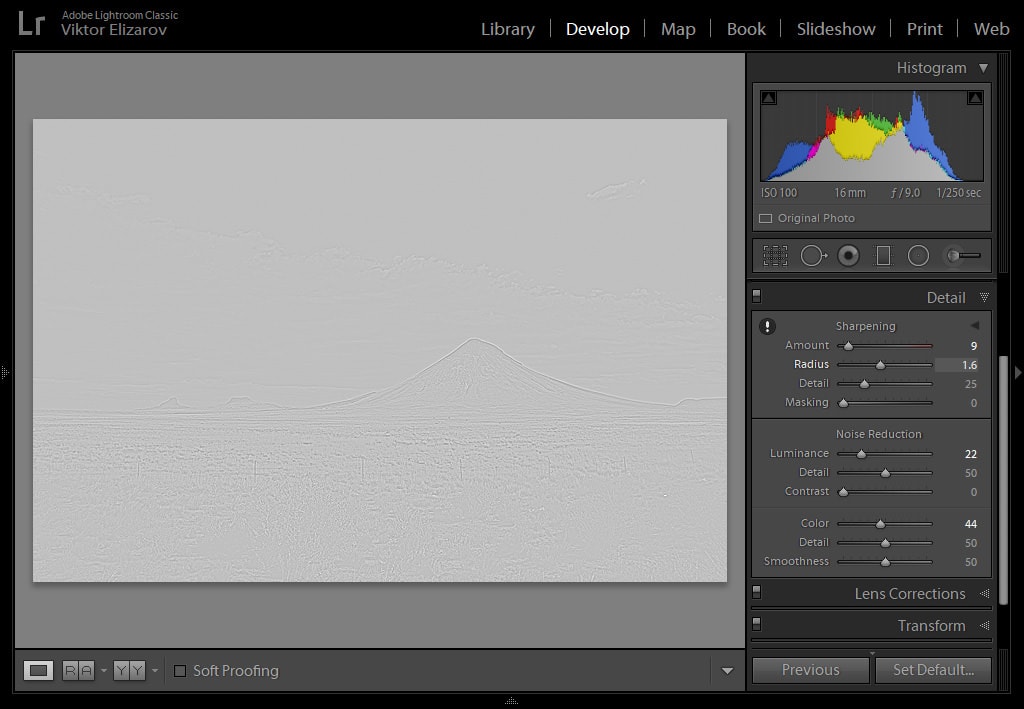

The Masking enhancing slider helps you reduce the impact of sharpening by narrowing the affected space. The mix of the Masking enhancing slider and the Alt/Possibility secret is essentially the most helpful visible helper in all the Element Panel. It exhibits the world affected by sharpening in white and retains the unaffected areas in black. That is one of the best ways to restrict the sharpening impact to the perimeters and depart the flat areas just like the sky or water unaffected.
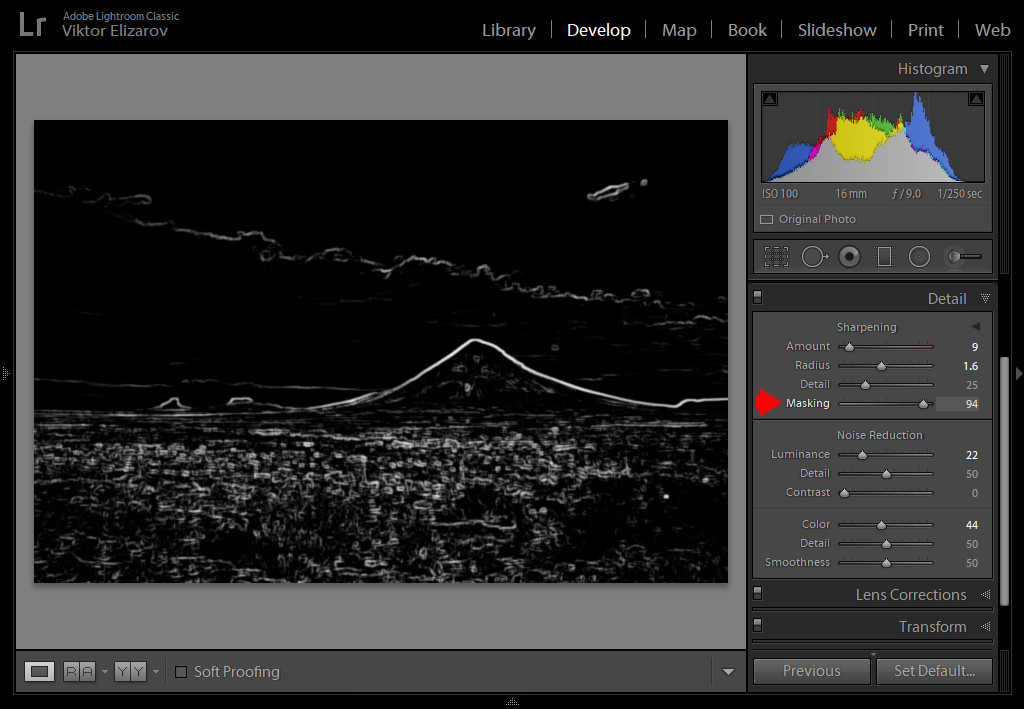

Visualizing Noise Discount Impact
Maintain down the Alt/Possibility key whereas dragging the Luminance, Element, or Distinction sliders. This exhibits the picture in black and white so that you could higher consider the noise discount impact.


Lens Correction Panel
Through the use of the Alt/Possibility keyboard modifier, you may have entry to the next reset choices: Reset Quantity, Reset Distortion, Reset Defringe, Reset Vignetting.


Visualizing Defringing
As soon as once more, the primary energy of the Alt/Possibility key within the Defringe part of the Lens Correction Panel is the power to visualise the affected areas. As a rule, the chromatic aberration impacts small areas of the picture across the edges. It’s simple to overcook defringing and alter the colours of the adjoining areas.
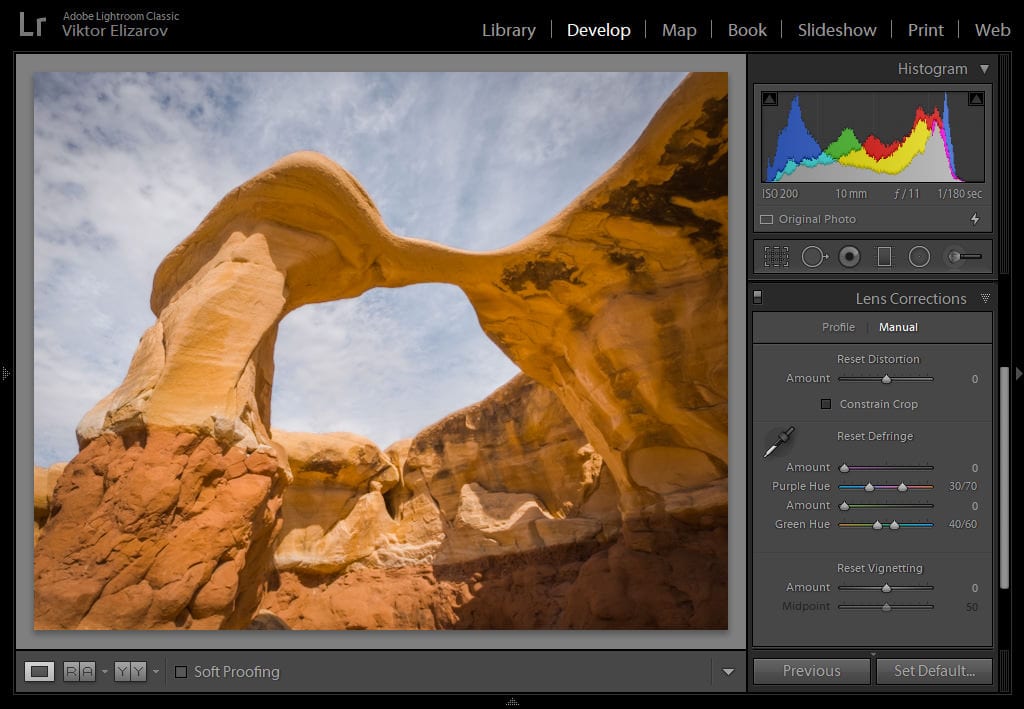

Maintain the Alt/Possibility key down whereas transferring the purple or inexperienced Quantity sliders to see the areas affected by the enhancing sliders from gentle gray to pure black. The unaffected areas of the picture are proven in white.
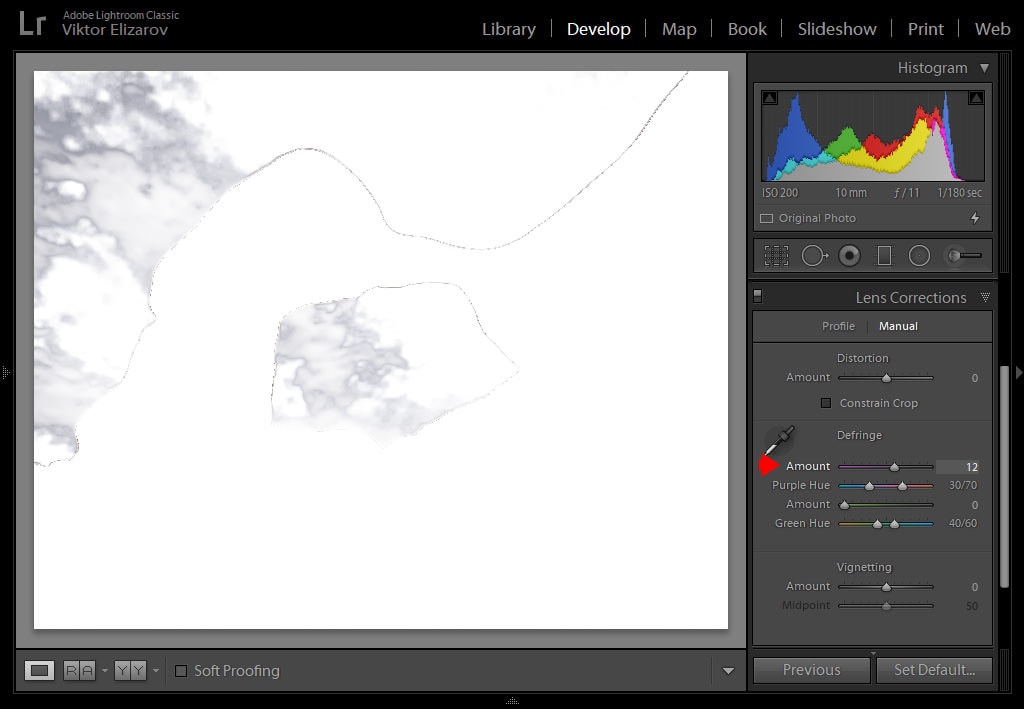

Maintain the Alt/Possibility down whereas dragging the purple or inexperienced Hue sliders to visualise the vary of tones affected by the enhancing sliders.


Rework Panel
With the Alt/Possibility keyboard modifier, you may have the power to reset the enhancing sliders within the following areas: Reset Upright and Reset Rework.
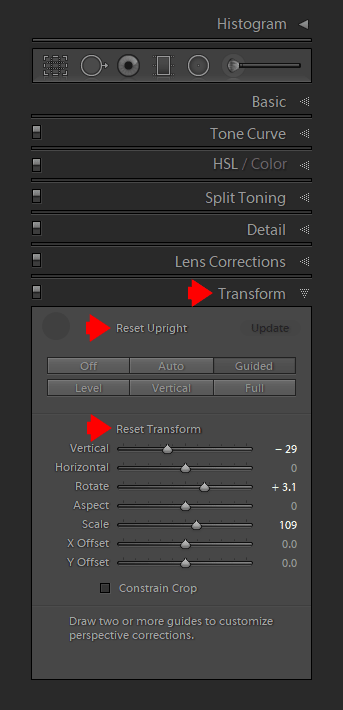

Results Panel
The Reset Publish-Crop Vignetting and Reset Grain seem if you maintain down the Alt/Possibility key.
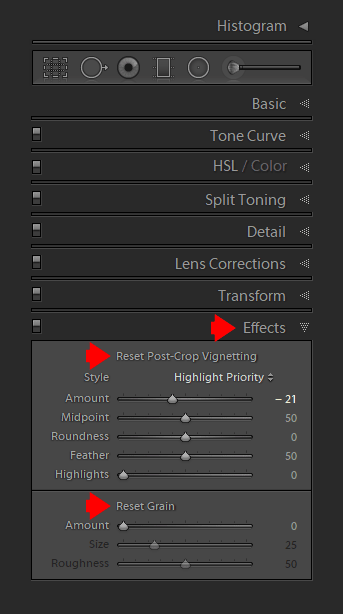

Visualizing Vignetting
Maintain down the Alt/Possibility key whereas transferring the Midpoint, Roundness, Feather, or Highlights slider to see the impact of vignetting if the Quantity worth was set to +100 or to -100. This can be a very helpful visualization software to correctly estimate the quantity and form of vignetting that’s required for any given picture.


Calibration Panel
Maintain down the Alt/Possibility key to entry the reset choices.


Crop Overlay
The Alt/Possibility key doesn’t invoke the reset choices within the Crop Overlay Panel as a result of the panel has a devoted reset button.
Crop to the Middle
The Alt/Possibility key within the Crop Overlay Panel lets you crop a picture to the middle fairly than to the sting. This modifier migrated to Lightroom from Photoshop and Illustrator.
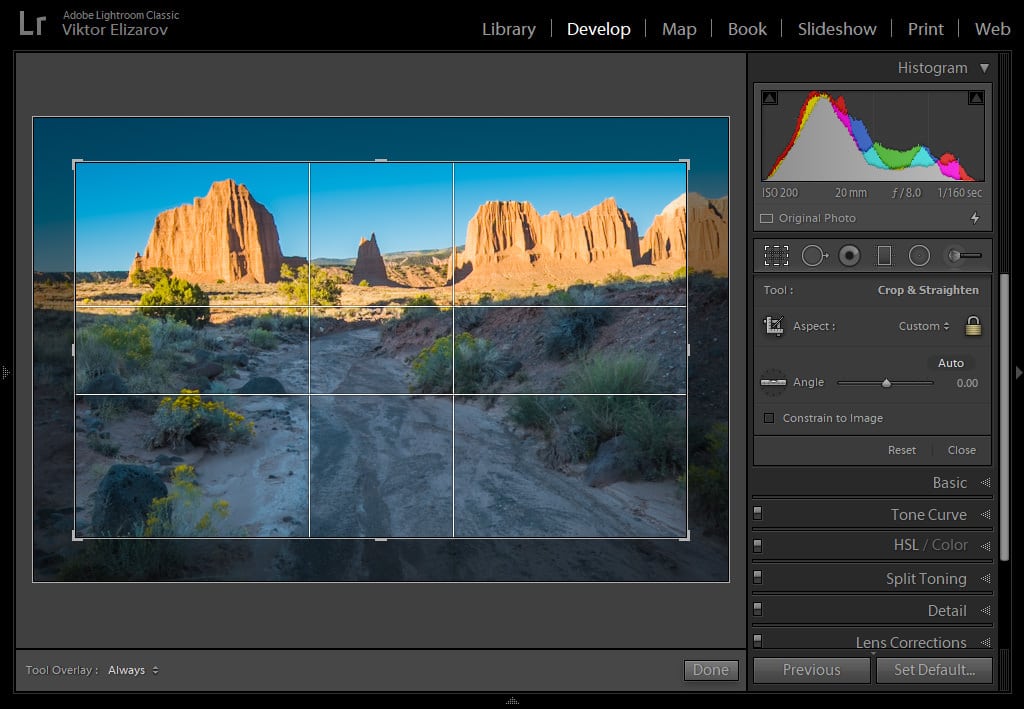

Spot Removing
Within the Spot Removing Panel, the Alt/Possibility performs just one perform—it modifications the cursor from a rounded brush to a scissor icon. This lets you delete any pointless spots by clicking on them with the scissors.
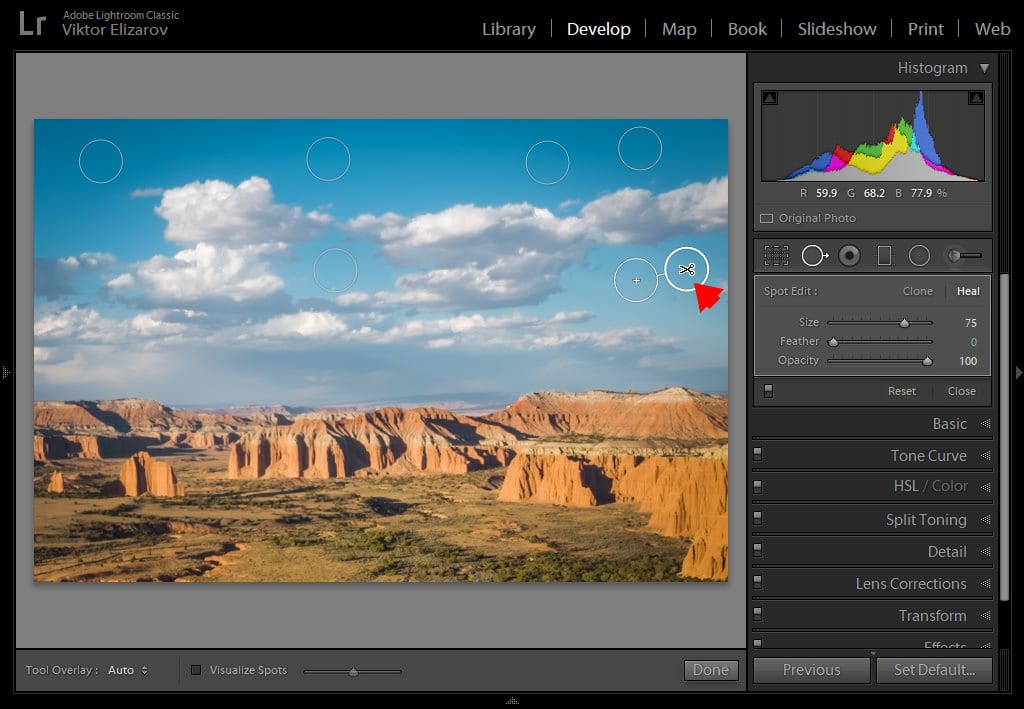

Graduated Filter
Within the Graduated Filter Panel, the Alt/Possibility performs two very helpful capabilities past the frequent reset capabilities.


Altering the Path of the Gradient
First, you possibly can maintain down the Alt/Possibility key and drag the sting of the chosen graduated filter towards the middle to invert its impact to the opposite facet of the picture. That is extraordinarily helpful.
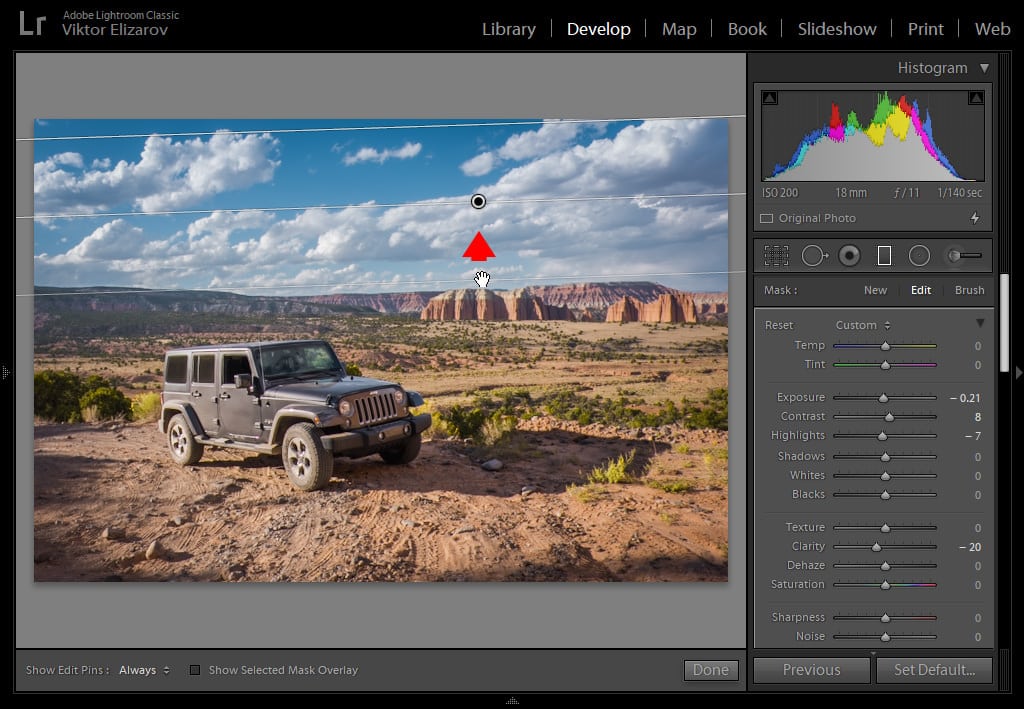

Adjusting Publicity
Second, you possibly can maintain down the Alt/Possibility key and transfer the mouse to the middle of the chosen graduated filter to alter the cursor to a two-headed arrow. Now you can drag the mouse to the left or proper to extend or cut back the publicity worth. I exploit this perform very often.
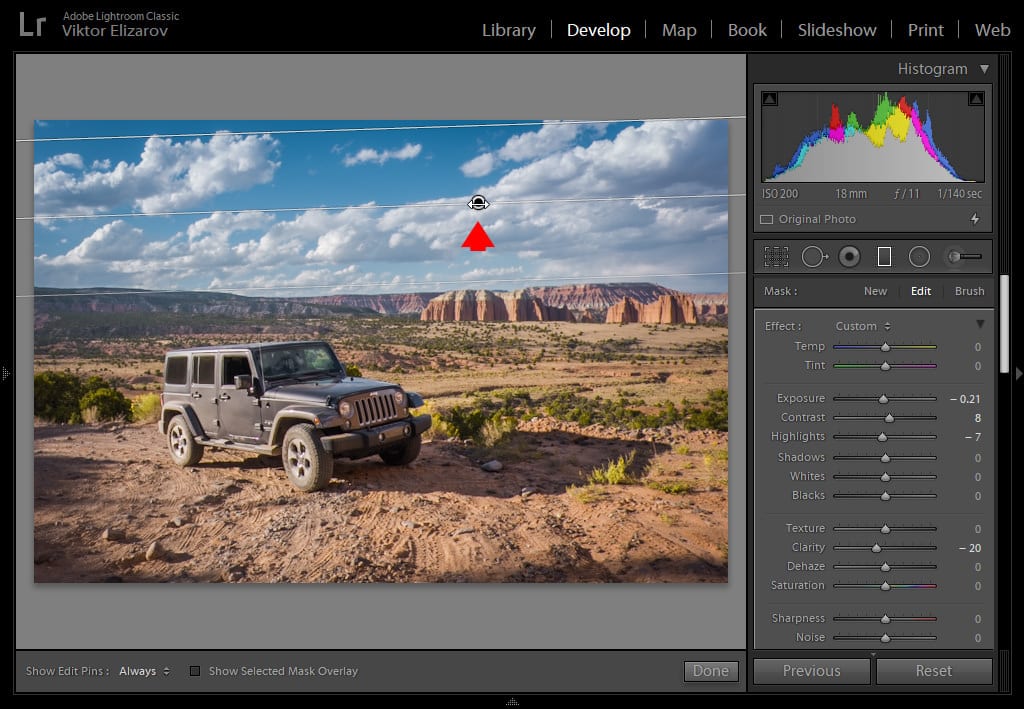

Radial Filter
Within the Radial Filter, the Alt/Possibility modifier works just like the Graduated Filter. You should use it to reset the 17 enhancing sliders to the default worth of zero in a single click on.


Altering Publicity
You may as well change the Publicity worth of the chosen Radial Filter by dragging the mouse to the left or to the fitting. Don’t forget that you could press the Alt/Possibility key and transfer the mouse over the middle of the filter earlier than you possibly can have an effect on the Publicity change.


Filter Brush
By holding down the Alt/Possibility key when the Filter Brush software is energetic, it alters its performance in two methods.
First, it modifications the Impact label to a clickable Reset button for a fast option to reset all of the enhancing sliders to zero.
Switching from Brush to Eraser
Second, it modifications the filter from the Brush Mode to the Eraser Mode. That is extremely helpful when retouching portraits. You possibly can erase undesirable edits by merely urgent the Alt/Possibility key. Plus, you possibly can change the scale of the Brush and the Eraser independently utilizing the ] and [ shortcuts.


Setting the Default Develop Setting
When you are in the Develop Module and press the Alt/Option key, the Reset button at the bottom right corner of the UI changes to the “Set Default…” button.
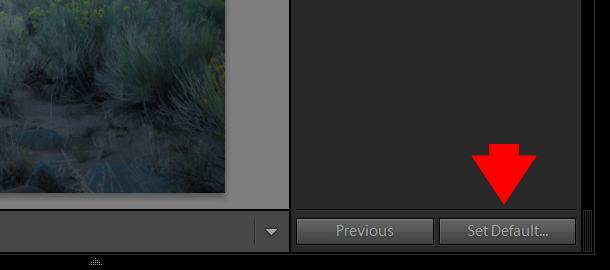

By clicking this, you are presented with the following dialog box:
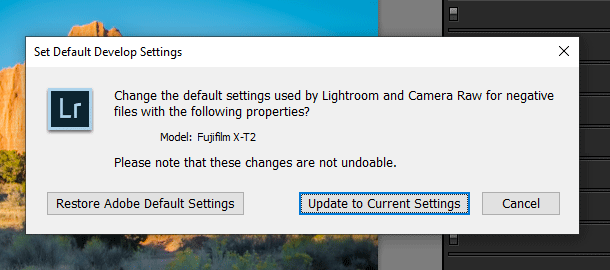

If you click the “Update to Current Settings” option, Lightroom will use the current settings as a default for any photos taken with that particular camera model. In my case, the Fujifilm XT2.
Let’s see when this feature might be useful.
Lightroom does not handle the Fujifilm RAW files very well when applying Sharpening. It produces unnatural, wormlike artifacts. I could set the Sharpening value to zero and hit the “Update to Current Settings” option. From that moment, all my Fujifilm XT2 files will have a Sharpening value set to zero during import. All my Sony images will have the Adobe default value of 40.
I do not use this feature at all.
Library Module
In the Library Module, the Alt/Option key does not produce as many new options or functions compared to the Develop Module.
Solo Mode
Hold down the Alt/Option key and click on the header of any panel (left or right) to set the entire panel to Solo Mode.
Quick Edit
In the Quick Develop Panel, press the Alt/Option key to access the Sharpening and Saturation controls, which are hidden by default.
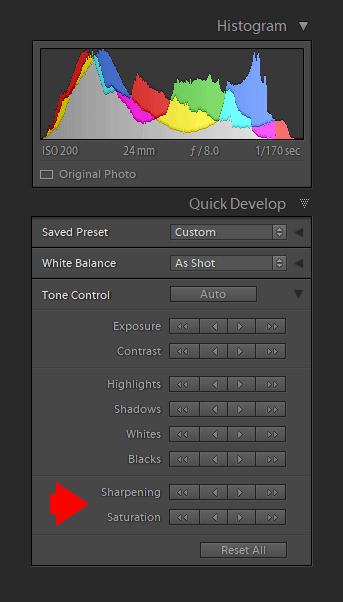

Keywording
Hold down the Alt/Option key to add keywords to a selected photo by hitting the numbers on the keyboard.
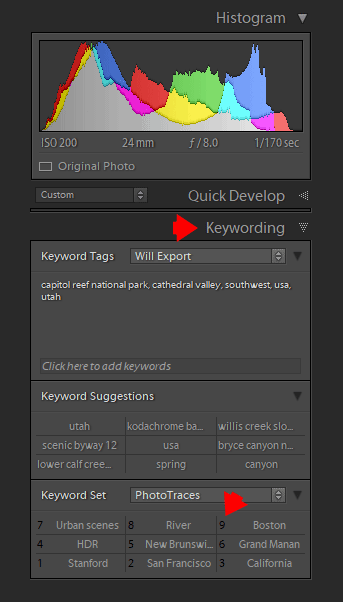

Metadata
Hold down the Alt/Option key and click the arrow next to the GPS field to trigger Google Maps to open in your default browser with the selected location where the photo was taken. Please note that this will not work if the GPS field is empty.
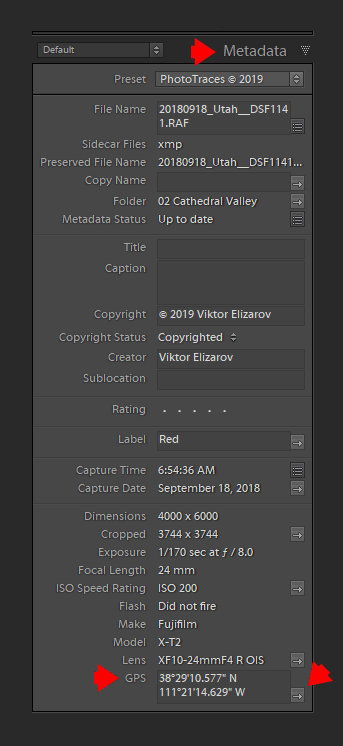

Export Module
The only thing the Alt/Option key does in the Export Module is to enable or disable the Solo Mode.


Conclusion
I consider the Alt/Option Keyboard Modifiers to be some of the most useful and lesser known functions of Lightroom. I do not believe that you have to learn and memorize all of them. Simply adopt the modifiers that are the most useful and impactful to your workflow and stick with them.
Here is a list of my favorites and the ones I use the most often:
- Reset – It is easy to remember and works almost everywhere
- Adjustment Brush – Switches from Brush to Eraser
- Basic Panes – Shows Highlight clippings
- Spot Removal – Deletes unwanted spots


